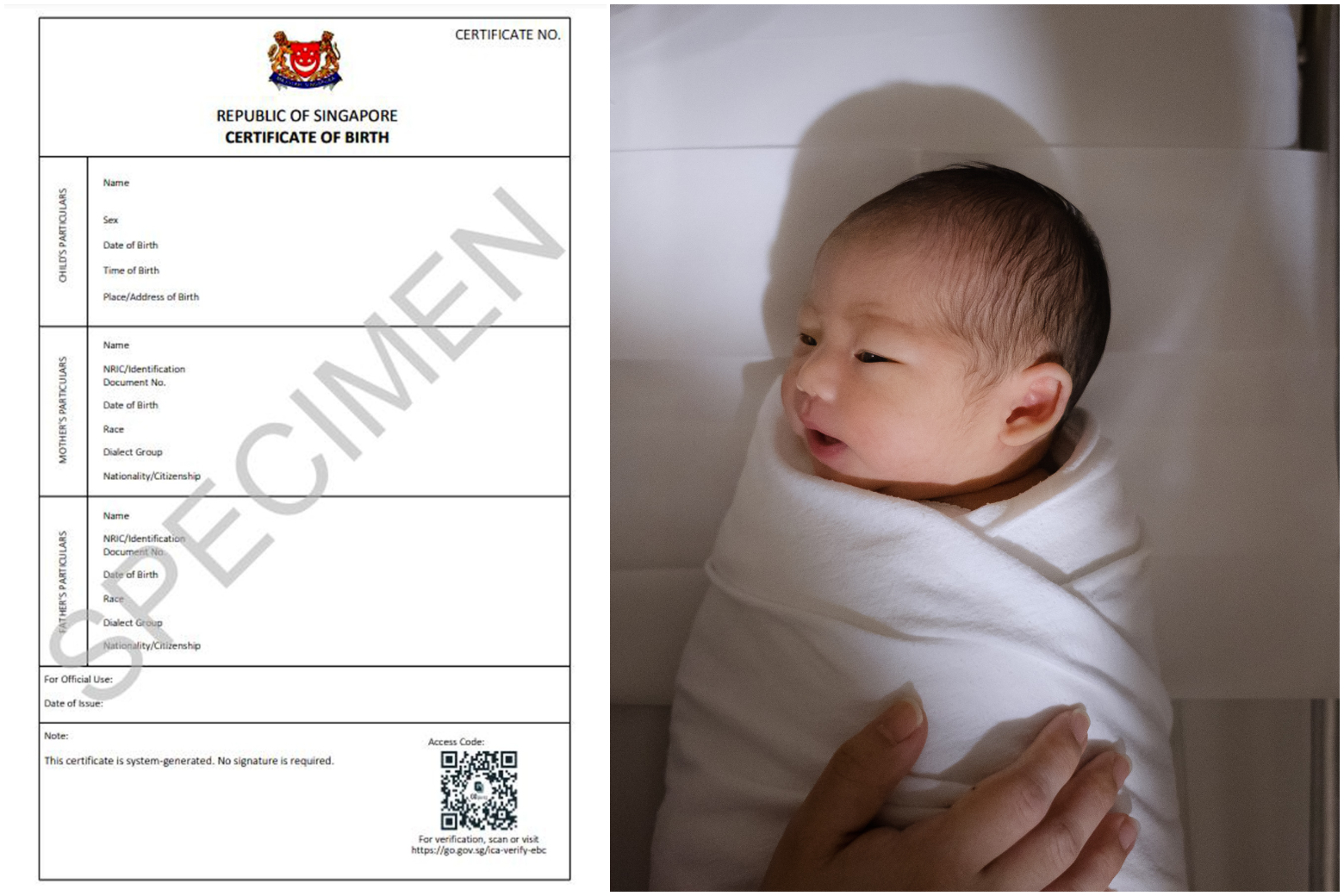Inclusion of dialect field in digital birth certs a welcome move, say supporters
Sign up now: Get ST's newsletters delivered to your inbox

The inclusion of the parents' dialect of a newborn in the digital birth certificates was announced by ICA on Aug 12.
PHOTOS: ICA, GAVIN FOO
Follow topic:
SINGAPORE - Clan association leaders are cheered by the news that the dialect field in digital birth certificates will be included from Sept 1.
The Singapore Federation of Chinese Clan Associations, the umbrella body of Chinese clan associations, said it welcomes the Government's move to make the adjustment to its policy in response to the public's opinion.
"It is encouraging to see that the matter has raised concerns among many," it said, adding that it was pleased that the feedback from the community and the federation has been favourably received by the relevant authorities.
The inclusion of the parents' dialects of a newborn in the digital birth certificates was announced by the Immigration and Checkpoints Authority (ICA) on Friday (Aug 12).
When the digital birth certificates were introduced on May 29 to replace physical ones, several fields of information, including the parents' dialects, were dropped to simplify the registration process.
The information continues to be registered by ICA and is available in Singpass.
ICA said it acknowledges "the feelings that have been expressed on the matter". It also said it should have made clear the reasons for not including the information on the parents' dialects in the digital birth certificate, and that the information was still available in Singpass.
Mr Lee Hong Ping, 53, head of Char Yong (Dabu) Association's heritage committee, said the Hakka clan hopes the move will help younger generations better understand and engage with their dialect group and ancestral roots.
Mr Francis Phua, 63, president of the Singapore Hainan Hwee Kuan, said: "Without knowing our dialect group, we do not know the roots of our pioneer forefathers and their sacrifices as they journeyed here from their ancestral homes in search of a better life for their future generations."
The same sentiment is shared by Teochew Poit Ip Huay Kuan president Chan Kian Kuan, 72, who said: "Knowing where one's ancestors come from, and why they chose to settle down here, can give a person a stronger sense of belonging in Singapore."
Mr Andrew Tjioe, 64, vice-president of Singapore Puxian (Hinghwa) Network, said the inclusion will also help track the size of the Hinghwa population in Singapore more easily.
But not all may find the change as crucial.
Mr Ion Danker, a 43-year-old communications professional, said that as a Eurasian, the dialect field is not that important. His is stated as "English".
Similarly, Mr Malminderjit Singh, 43, chairman of the Sikh Advisory Board, said the change does not really affect the Sikh community as much, since the majority of Sikhs in Singapore are also Punjabi, their largest dialect group.

